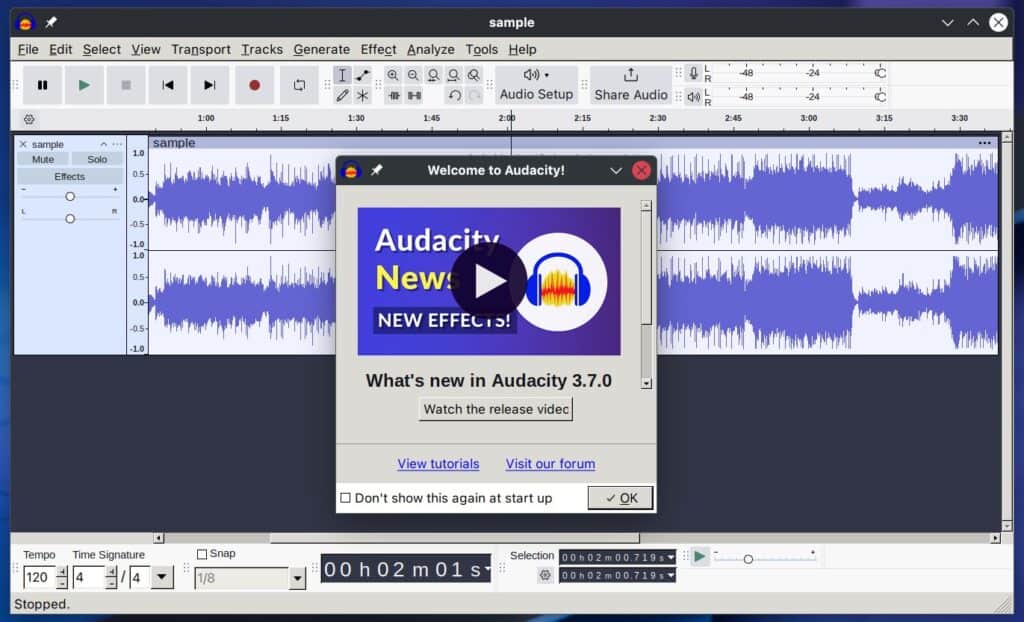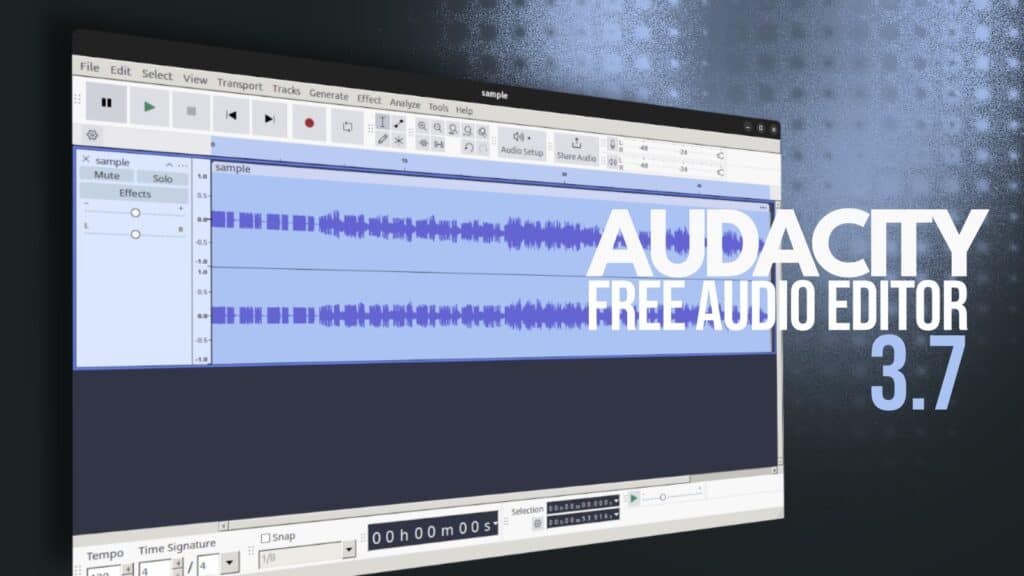The popular open-source audio editing software Audacity has just rolled out version 3.7, bringing a series of important updates and bug fixes.
While the 3.7.x series primarily serves as a set of maintenance releases leading up to the anticipated Audacity 4.0, this update packs several notable enhancements that will make users’ editing experience smoother and more reliable.
One key focus is improving Linux compatibility, addressing several bugs found in Audacity’s previous release. Thus, this update should ensure greater stability and functionality for those using Linux-based systems.
Meanwhile, Audacity’s light theme has received a contrast enhancement, making the interface more visually accessible, especially for users working in bright environments.

The developers have also changed the software’s terminology. In the MP3 export options, the setting previously labeled “Insane” has been renamed to the more user-friendly “Excessive.” In a similar spirit, the term “Split cut/delete” has been updated to “Cut/delete and leave gap” to provide clearer instructions on what the action entails.
It’s worth noting that the new release introduces improved handling of non-standard characters when saving projects to the cloud, ensuring fewer errors for those using diverse file names.
Moreover, the update fixes issues with the pasting function as well, making sure that clips on other tracks remain undisturbed during edits, even when the “editing clips can move other clips” option is enabled.
Further fixes include an issue with database compacting that previously did not work properly in some cases and a startup speed improvement on systems with many audio devices. For macOS users, VST preset paths are now correctly addressed.
Additional enhancements include making the adding, removing, replacing, and reordering of effects an undoable action and improving flexibility during sound editing. The developers have also fixed crashes related to closing projects while toggling real-time effect stacks and canceling operations on stereo tracks.
Lastly, importing Opus files using libopus now keeps audio data properly aligned, addressing previous shifting issues.
Visit the changelog for detailed information about all changes in Audacity 3.7.

Great article. I love your articles. Please cover Tenacity too, it's better than Audacity and more in line with the "open source spirit."
Thanks for the suggestion, Tom! I'll definitely give it a look.
Sounds great Bobby! If you want to take a deep dive into my "open source spirit" comment, the discussion thread following the introduction of the Audacity Contributor License Agreement (CLA) may be of interest: https://github.com/audacity/audacity/discussions/932 There's other issues/history why Audacity was forked but the CLA seemed to be a pretty big sticking point. And on this page there's an explanation on how Tenacity differs from Audacity: https://github.com/tenacityteam/tenacity . Both projects have over 200 contributors on GitHub, but no doubt Audacity appears to be under heavier development and also has corporate money behind it since the time the Muse group acquired it in 2021. But it also appears that "corporate interests" can be a mixed bag, especially when taking into account developers who may be contributing code under conditions of benevolence and sacrifice ;-). Best, Tom D.